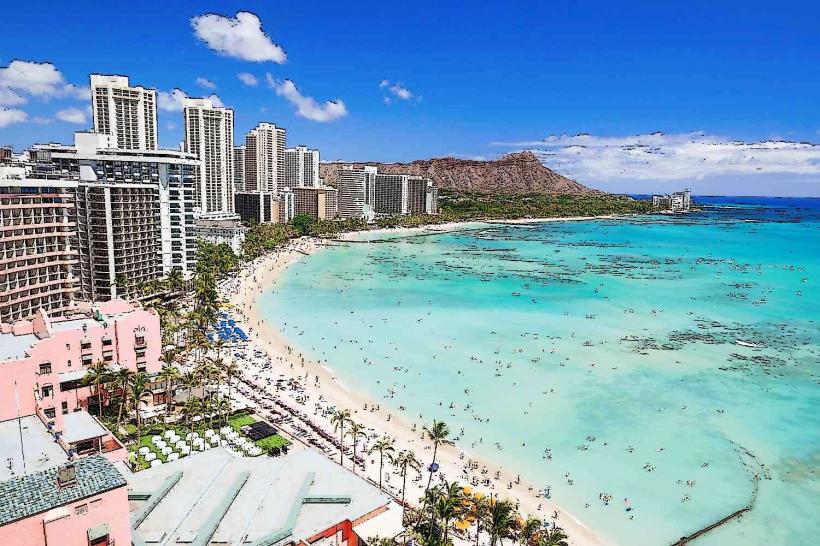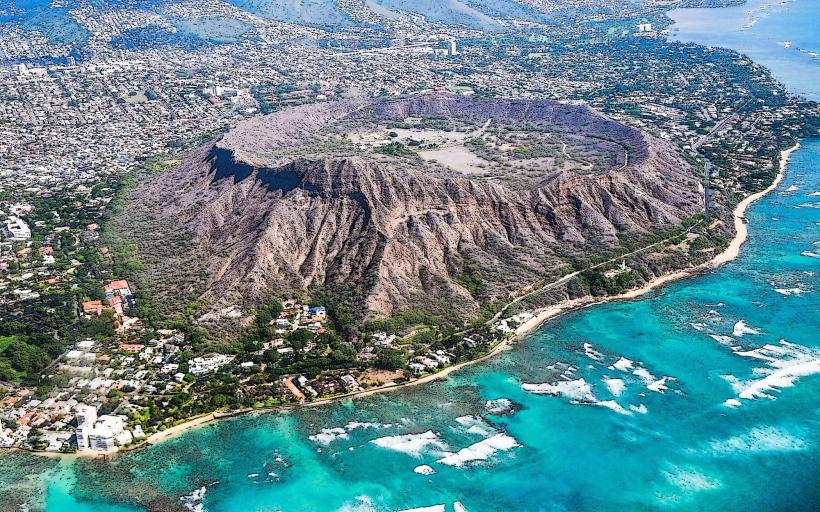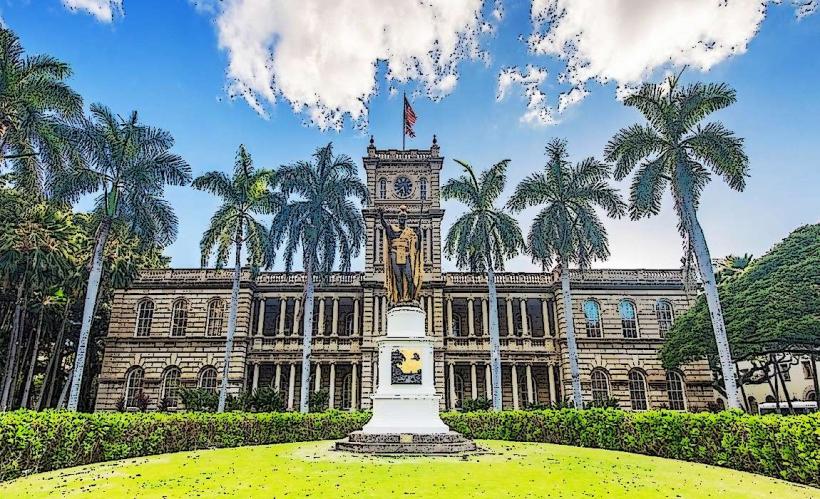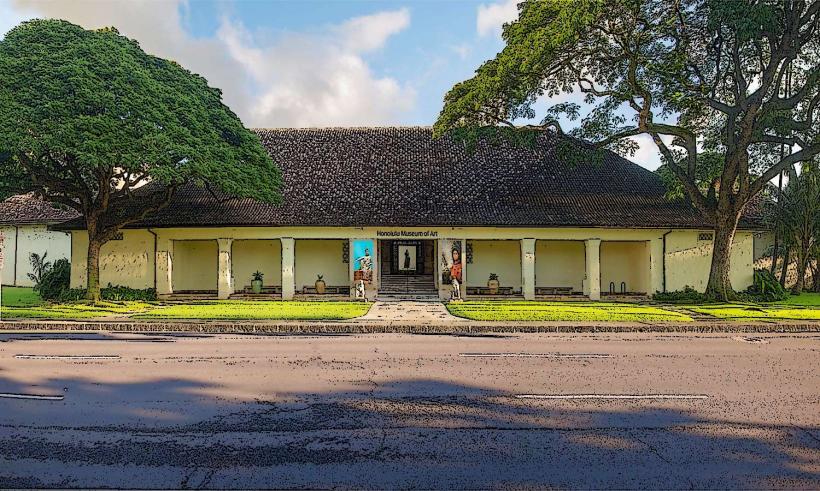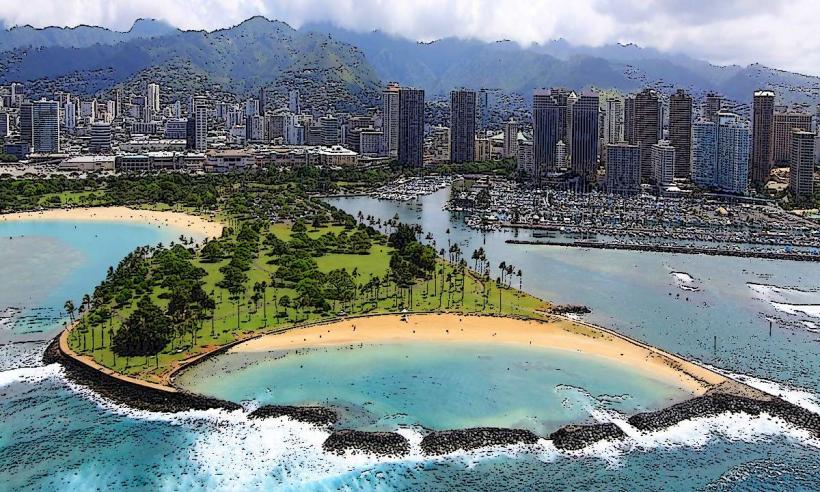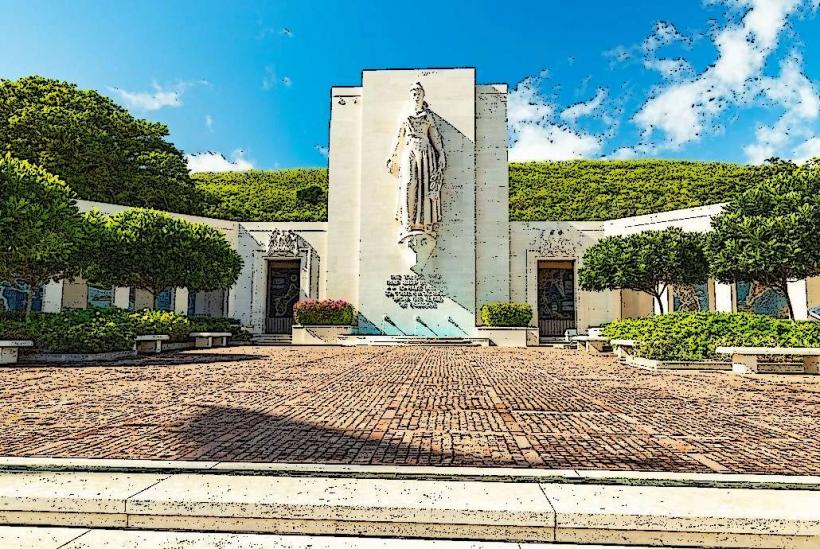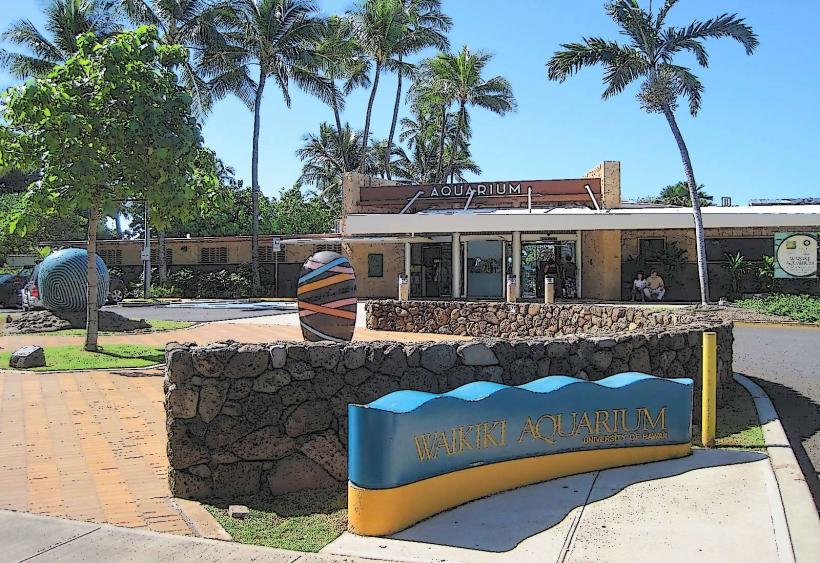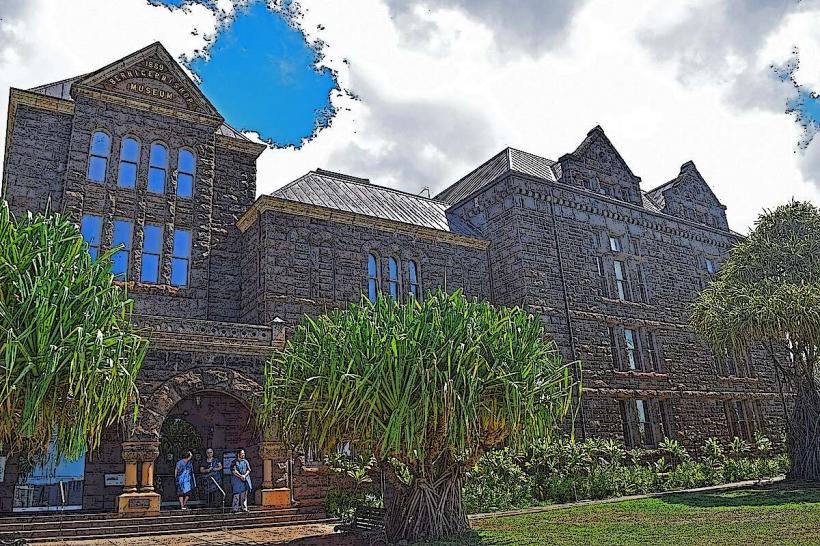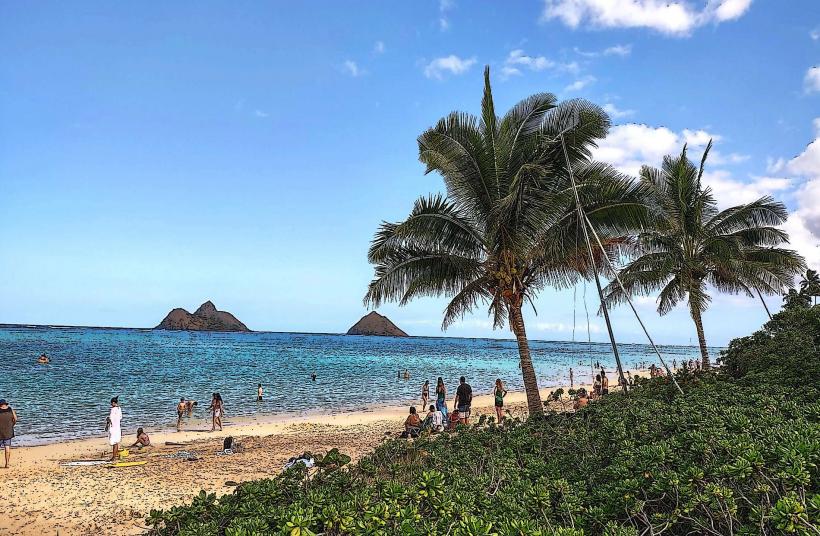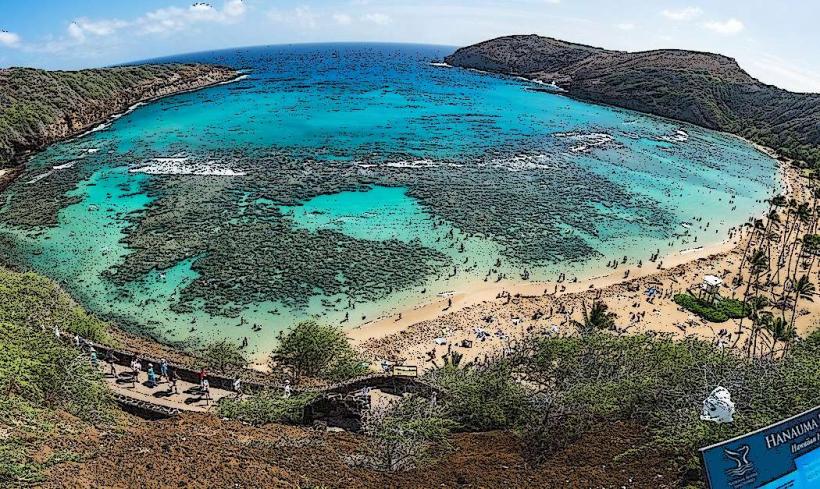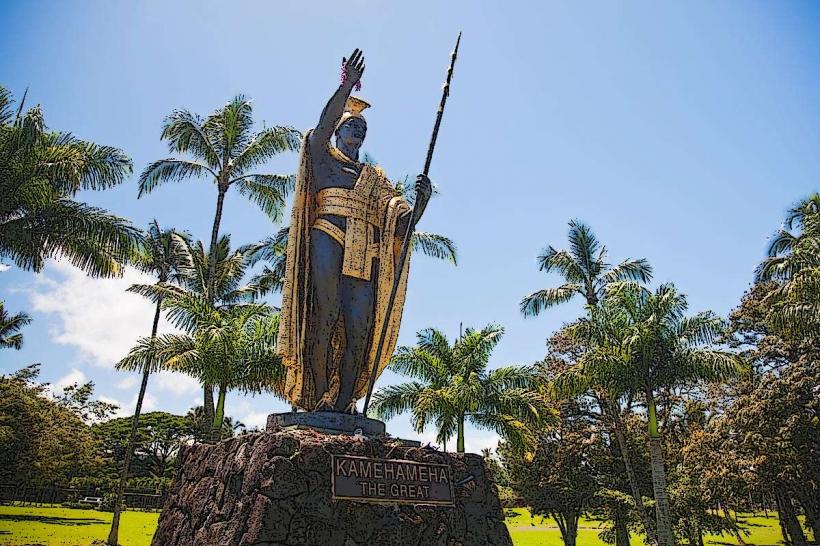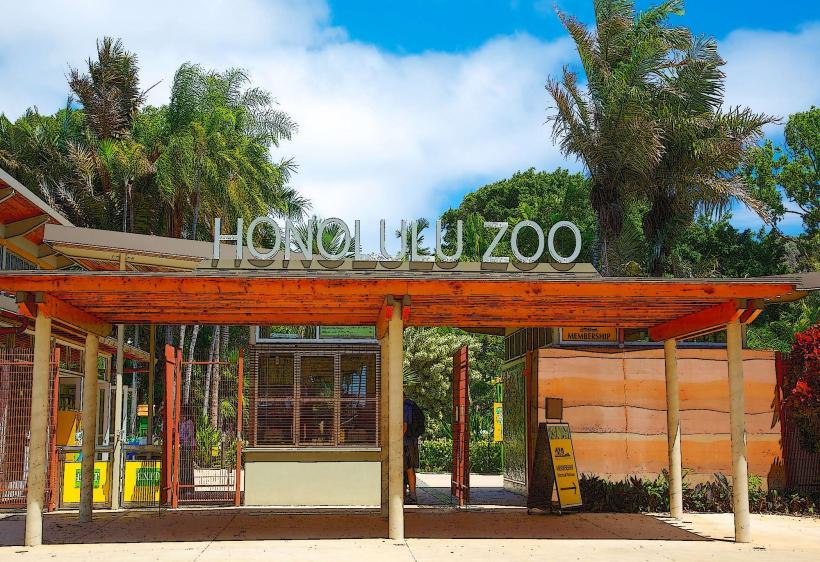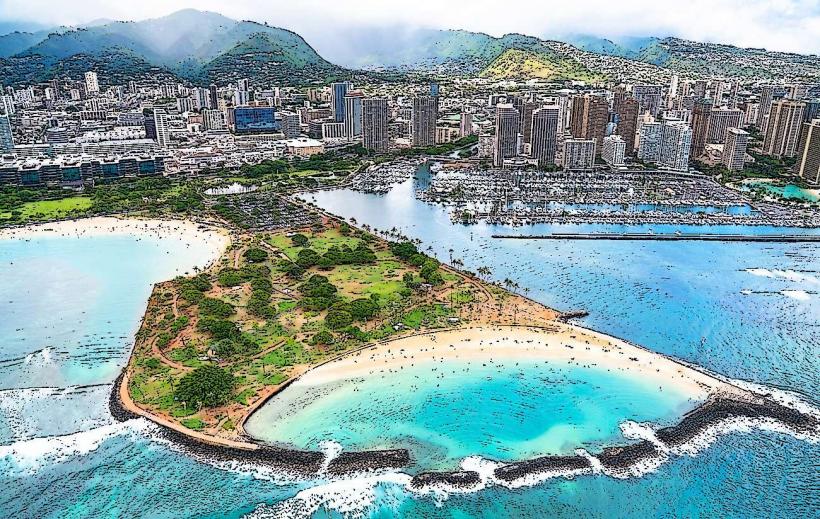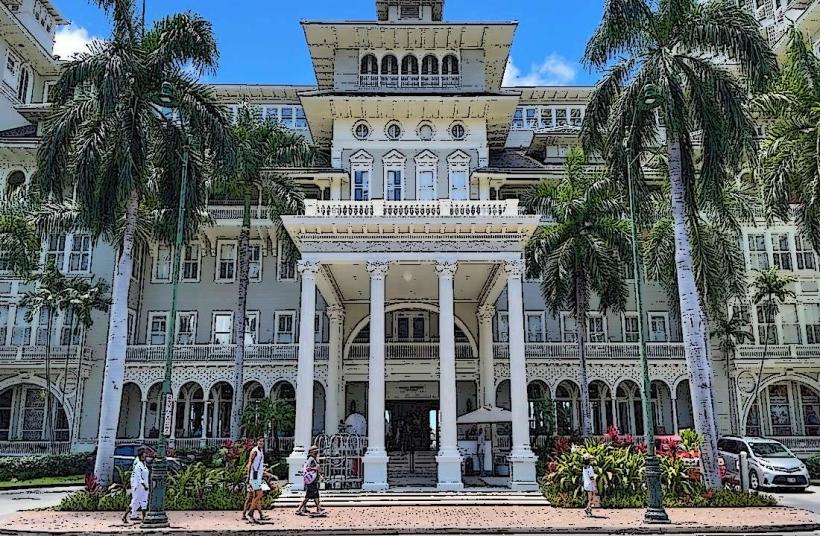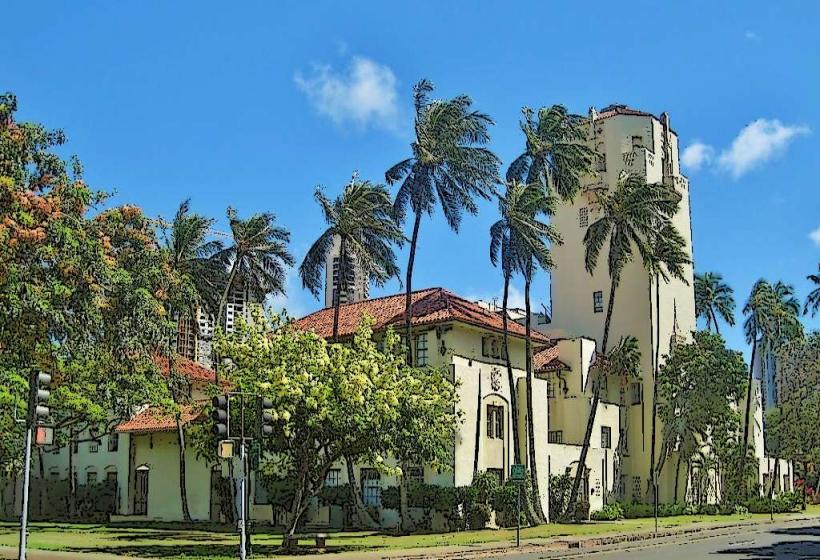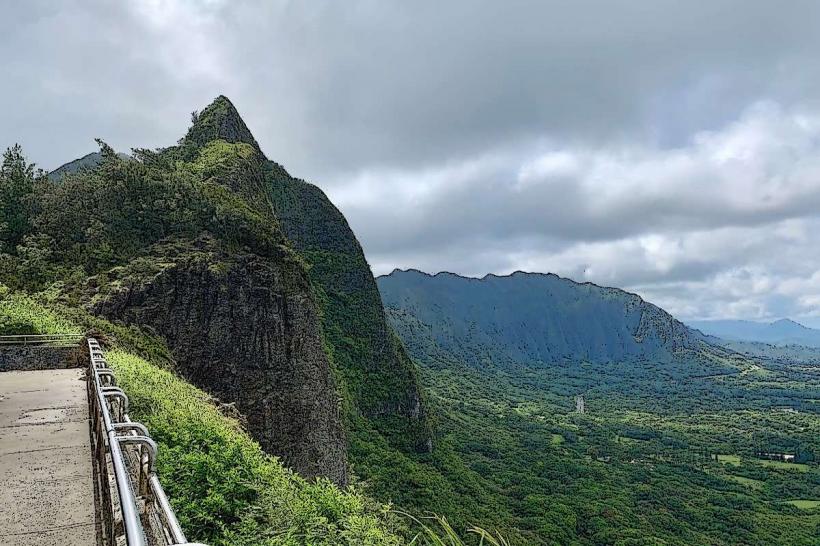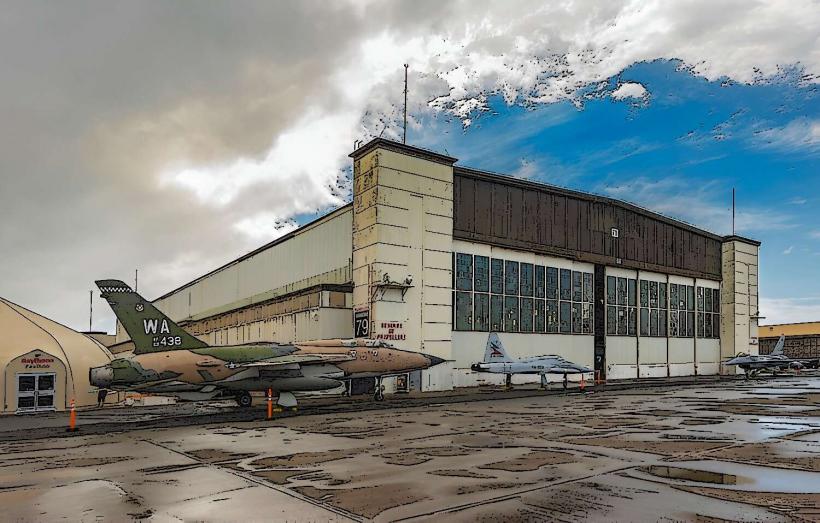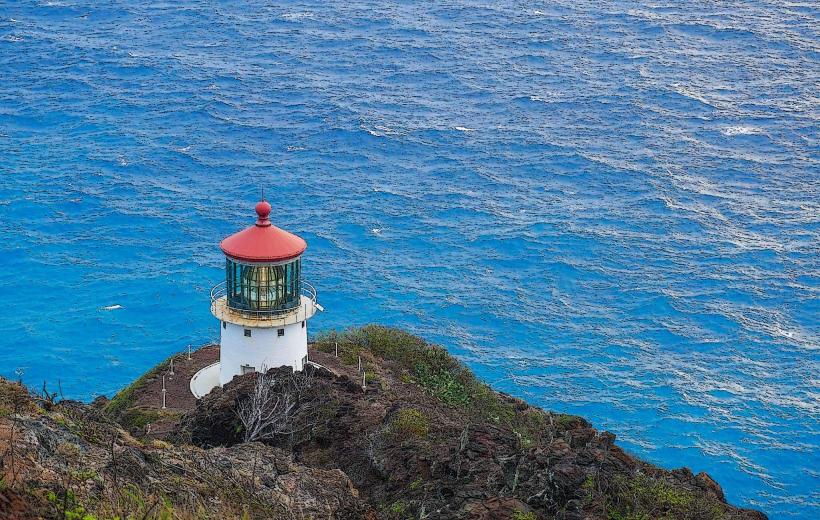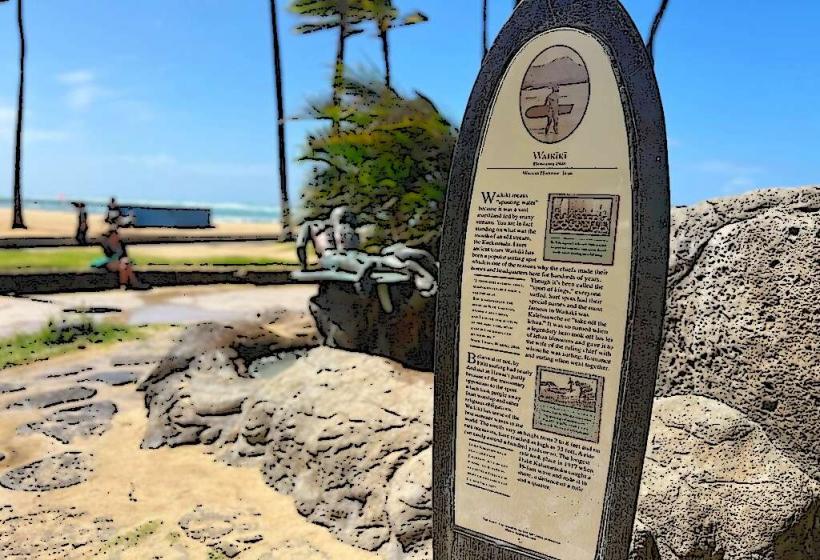Information
Landmark: USS Arizona Memorial (Pearl Harbor)City: Honolulu
Country: USA Hawaii
Continent: North America
The USS Arizona Memorial at Pearl Harbor, located in Honolulu, Hawaii, is one of the most significant World War II memorials in the United States. It commemorates the attack on Pearl Harbor on December 7, 1941, and honors the 1,177 crewmen of the USS Arizona who lost their lives during the attack. This event marked the U.S. entry into World War II.
Historical Background
- The Attack on Pearl Harbor:
- On the morning of December 7, 1941, Japanese forces launched a surprise aerial attack on the U.S. Pacific Fleet stationed at Pearl Harbor.
- The USS Arizona, a Pennsylvania-class battleship, was struck by multiple bombs, one of which ignited its forward ammunition magazine, causing a catastrophic explosion.
- The ship sank in less than nine minutes, claiming the lives of nearly three-quarters of its crew.
- Significance:
- The attack killed over 2,400 U.S. personnel, damaged or destroyed 19 ships, and over 300 aircraft.
- President Franklin D. Roosevelt famously referred to the attack as "a date which will live in infamy," leading to the U.S. declaring war on Japan the following day.
The USS Arizona Memorial
- Design and Construction:
- The memorial was designed by architect Alfred Preis and completed in 1962.
- It spans the remains of the sunken USS Arizona but does not touch the ship, symbolizing both remembrance and respect.
- Its design includes:
- A central open-air section offering a view of the wreckage below.
- A shrine room listing the names of the 1,177 sailors and Marines who perished aboard the USS Arizona.
- The structure is 184 feet long and can accommodate 200 visitors at a time.
- Symbolism:
- The memorial's shape features a dip in the middle, representing the country’s low point after the attack, flanked by higher ends symbolizing eventual victory and peace.
Visiting the Memorial
- Access:
- Visitors reach the memorial by boat, departing from the Pearl Harbor Visitor Center, managed by the National Park Service.
- Experience:
- A visit begins with a 23-minute documentary film detailing the attack on Pearl Harbor.
- The boat ride provides views of Ford Island, Battleship Row, and the harbor.
- At the memorial, visitors can observe:
- Parts of the sunken USS Arizona visible beneath the water.
- The "Black Tears"—oil droplets still leaking from the ship, known as the "tears of the Arizona".
- A solemn reflection space in the shrine room.
Pearl Harbor National Memorial
- The USS Arizona Memorial is part of the larger Pearl Harbor National Memorial, which includes:
- Battleship Missouri Memorial:
- The site where Japan formally surrendered, ending World War II.
- USS Bowfin Submarine Museum and Park:
- Featuring the WWII-era submarine USS Bowfin.
- Pearl Harbor Aviation Museum:
- Exhibits historical aircraft and artifacts.
- Pacific Fleet Submarine Museum:
- Dedicated to the role of submarines in the Pacific theater.
- Battleship Missouri Memorial:
Practical Information
- Hours:
- Open daily except for Thanksgiving, Christmas, and New Year’s Day.
- Timed tickets are required for access to the USS Arizona Memorial.
- Fees:
- Entry to the Pearl Harbor Visitor Center is free, but tickets for the USS Arizona Memorial boat ride may require a reservation fee.
- Tips for Visitors:
- Arrive early to secure parking and avoid crowds.
- Wear respectful attire; this is a place of reflection and remembrance.
- Photography is allowed but be mindful of its solemn nature.
Honoring the Fallen
- The USS Arizona is considered a sacred burial ground, as most of the crew remain entombed within the ship.
- Survivors of the attack who served on the USS Arizona can choose to have their ashes interred with their shipmates, a tradition that has been honored since 1982.
- The memorial stands as a testament to sacrifice, resilience, and the enduring lessons of history.
The USS Arizona Memorial is more than a historical site—it is a place for contemplation, education, and remembrance of those who gave their lives in the name of freedom. Its powerful presence ensures that the legacy of Pearl Harbor and the sacrifices made there are never forgotten.

